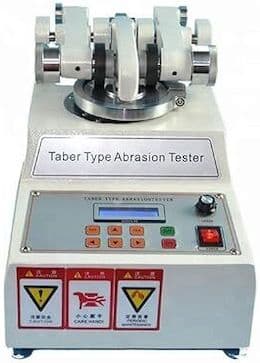
Curated with aloha by
Ted Mooney, P.E. RET

The authoritative public forum
for Metal Finishing 1989-2025

-----
Do anodizing standards (e.g. MIL-A-8625) require cleaning and testing or is it optional?
Q. This past week I was shocked to learn that all of our anodizing suppliers consider our specifications optional and have never followed them. I need to understand what I have been doing wrong in the purchasing process.
All three of our suppliers are ISO 9000 and have been approved by our QA department. In all procurements, our RFQ's and PO's and the supplier's quotes and CofC's all stated AMS2469 or MIL-A-8625 / MIL-PRF-8625
[⇦ this spec on DLA] as the case may be. These specifications include requirements for cleanliness, color uniformity, abrasion test panels, corrosion test panels, quality control, etc.
However, 2 out of 3 suppliers did not have any copies of these specifications. All 3 suppliers claim that AMS2469 and MIL-A-8625 only require them to use a particular chemistry and achieve a certain thickness, and that any cleaning and testing are the purchaser's responsibility. They have never sent a test panel for salt spray testing and refuse to even quote on it. One of them claims that the problems we have seen from them (white powdery patches on black anodize, bare spots without dye, weak anodizing that can be scratched off with a fingernail, etc.) are evidence of defects in the base material.
Am I missing something fundamental here? Has the anodizing process become so well understood and controlled that testing is obsolete? Is surface preparation (cleaning) normally a supplier or purchaser responsibility? How can I get a shop to comply to AMS2469 in its entirety? (Or would that be a bad idea?)
Yannick Trottierproduct designer - Mississauga, Ontario, Canada
2007
A. You have just verified how useless ISO 9000 is. It is theoretically the holy grail of quality Assurance, and it is a JOKE.
As to your vendors, find a new vendor that will comply with the specification. They also are a JOKE!
- Navarre, Florida
A. 1) Replace your QA department.
2) Replace your suppliers. Potential new anodizers should be willing to show past 7 years of records for solution chemistry records, salt spray test results and Taber abrasion test results (for hard anodizing).
3) Check with the ISO 9000 certifier(s) regarding possible phony certificates.
Good luck.
- Goleta, California
Rest in peace, Ken. Thank you for your hard work which the finishing world, and we at finishing.com, continue to benefit from.
A. Yannick,
Sounds like you are being sold a story. To be quite honest you should drop all of those suppliers like a stone.
Specifications may not explicitly detail the cleaning methods required but, because they specify a cleaning method that doesn't mean that you don't clean. Also the suppliers will need to carry out the cleaning ops as part of the anodising process, they can't expect you to do it.
The suppliers should always be carrying out control tests in accordance with the relevant specification. If you are calling up a spec. that includes periodic or lot testing, your supplier must carry out those tests or, if they don't have the capability to carry out the test themselves, send the relevant test pieces to a test house (preferably ISO 9000/9001 approved). It is not your responsibility to carry out the tests.
I would also suggest that if they are releasing parts with CoCs stating that they meet the requirements of the relevant specification then they are committing a fraud, as it is patently obvious that they don't.
I would strongly recommend that your company carries out a process audit and a quality systems audit to find out what on earth they are doing.
You are calling up AMS and MIL specs, I hope that these are not going to appear on any aircraft anywhere. If they are go to an AS9100 approved company, preferably one with NADCAP as well.
Evidence on whether there should be quality control testing is there. You have rejects due to poor quality anodising, indicating that quality controls are definitely needed.
As for getting a supplier to comply with the specification that you have quoted, it is their obligation when they accept the order to comply. It isn't an option (unless you allow it to be).
Aerospace - Yeovil, Somerset, UK
![]() Thanks Brian, that was exactly the kind of answer I was looking for. We're now in the process of switching over to new NADCAP suppliers as you recommended. Your outside perspective on this issue was very helpful.
Thanks Brian, that was exactly the kind of answer I was looking for. We're now in the process of switching over to new NADCAP suppliers as you recommended. Your outside perspective on this issue was very helpful.
- Mississauga, Ontario, Canada
2007

